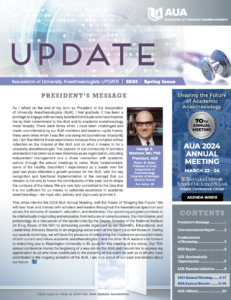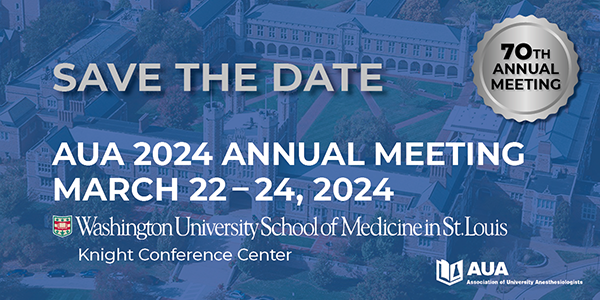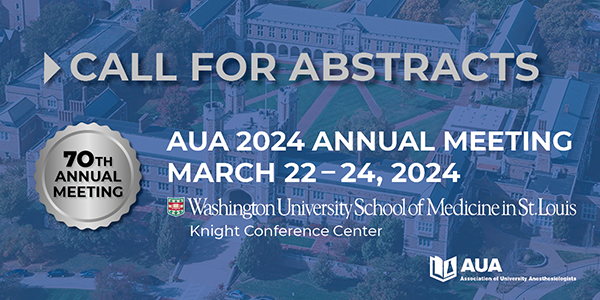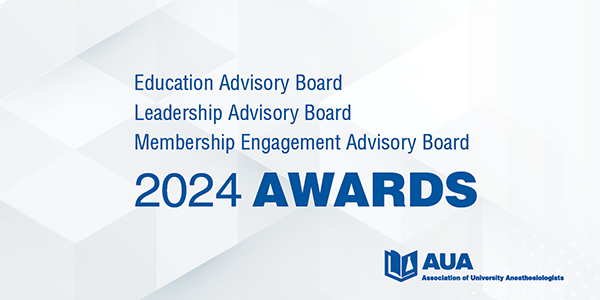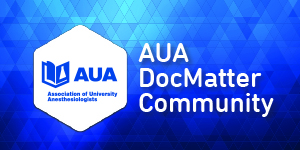by Shobana Rajan, MD, FASA
This year’s AUA meeting was a fantastic compilation of various activities for the academic anesthesiologist and included panels on different topics of interest, posters, and oral presentations by award winners. The Educational Advisory Board (EAB) had a significant presence at the AUA meeting. They hosted two 60-minute panels on topics that were very relevant and applicable to those who teach and train residents, fellows and faculty.
Continue Reading…
by Andrea P. Dutoit, MD and Emily G. Teeter, MD
Over the past decade, the average number of applications to Anesthesiology residency programs has climbed to over 65 applications per applicant and over 1400 applications per program. This increase in application numbers has not improved match rates and resulted in application congestion. As a result, programs may filter applications using metrics (such as USMLE Step Scores, clerkship grades, and reputation of medical schools) that may not identify the best residents for their program. A more transparent, equitable, and reliable system for communicating applicant preferences to residency programs is critical.
Continue Reading…
by Craig S. Jabaley, MD, FCCM and Elizabeth A. Duggan, MD, MA
The early 1990s saw a shift in national healthcare policy with a focus on primary care and capitated payment models, igniting apprehension about the future of specialized medicine, elective surgery, and anesthesiology. These and other concerns were reflected in the 622 unfilled anesthesiology residency positions in the 1996 Match, and Match trends did not stabilize until the early 2000s (Figure 1). Despite initial concerns, demand for anesthesiologists escalated, resulting in workforce shortfalls that continue to shape academic anesthesiology.
Continue Reading…
by Valerie E. Armstead, MD, DABA, FASA and Michael Aziz, MD
It gives us great pleasure, as members and Co-chairs of the Association of University of Anesthesiologists (AUA) Membership Engagement Advisory Board (MEB), to introduce our committee to the AUA. The MEB has several initiatives to meet the goals of the latest inaugural board of the AUA.
Continue Reading…
by Nader D. Nader, MD, PhD, FCCP, FACC, FAHA, FASA and Christine N. Sang, MD, MPH, FASA
Employing an anesthesiologist is often seen as hiring a physician to perform clinical duties by both academic and non-academic institutions. The term “triple threat (educator, clinician, and researcher),” once a milestone for the academic anesthesiologist, has become an antiquated concept, replaced by newly acquired administrative skills that are highly valued by the hospital/university administrators in selecting academic chairs. Although many successful researchers acquire practical leadership and management skills throughout their careers, obtaining additional degrees in business acumen of anesthesiology, such as a Master of Business Administration (MBA), is one of the strong points of candidates for academic chairpersons. With the changes in leadership positions from clinical/bench researchers to formally MBA-trained anesthesiologists, there is a pressing question of who will lead the field of anesthesiology.
Continue Reading…
